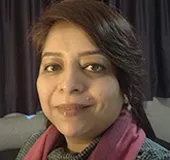-
CENTRES
Progammes & Centres
Location
 PDF Download
PDF Download 
Monika Arora, “A Landscape Analysis of Adolescent Health in India: The Case of Uttar Pradesh”, ORF Occasional Paper No. 227, December 2019, Observer Research Foundation.
Adolescents are young individuals, aged 10–19 years, in their most rapid and formative phase of human development. Adolescence is a complex, transitional stage with distinctive physical, cognitive, social, emotional and sexual development, which requires special attention from all stakeholders.1 During this phase, the young search for their identity and develop skills that will help them become responsible adults. To utilise their full potential and become responsible and productive members of society, adolescents need the support of adults. Thus, they require special focus within national development programmes, policies and plans. One’s health during adolescence determines their future health, as risky behaviour in youth can have long-term consequences. The global interest in adolescent health grew after the International Conference on Population and Development (ICPD) in Egypt in 1994. The ICPD recommended adopting a human rights approach to recognise that sexual and reproductive health services and programmes must be set up for the development of adolescents worldwide.2
In 2006, India identified Adolescent Reproductive and Sexual Health (ARSH) as a key strategy under the Reproductive Child Health (RCH II) programme, followed by the “Reproductive Maternal Newborn Child and Adolescent Health (RMNCH + A) Strategy” in 2013. The Government of India (GoI) has renewed its focus on adolescents, since the investment yields triple benefits: for the adolescents, in their future adult life, and for the next generation of children.3 Adolescent health is crucial for shaping both the future of the world’s health and the achievement of Sustainable Development Goals (SDGs) related to health, nutrition, education, gender equality and food security.4 This paper presents a situational analysis of the progress in adolescent health in India and in Uttar Pradesh (UP), with the following objectives:
The views expressed above belong to the author(s). ORF research and analyses now available on Telegram! Click here to access our curated content — blogs, longforms and interviews.

Dr. Monika Arora is a public health scientist working in the area of Non-Communicable Disease Prevention and Control. She is the Director of the Health ...
Read More +